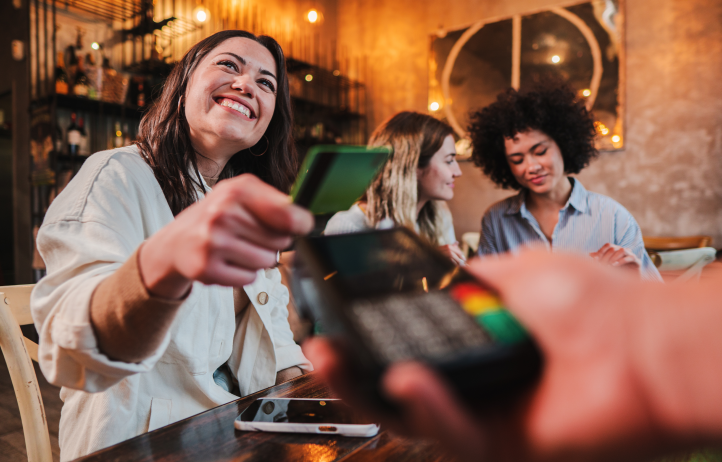BEING PREPARED IN ANY SITUATION
Imagine the scenario: You’ve been working hard and counting down the minutes until you can fly off to a tropical destination. You get to the airport, get through security, and have some time to relax while you wait for your flight. You’ve officially switched into vacation mode as you and your companion enjoy dinner. You hear a boarding call, gather your belongings and head to the gate. Bahamas, here we come!
Only, halfway through your flight, you realize that you left your credit card in the restaurant at the airport. Now what?
Take Immediate Action
Whether you are jetting off for a vacation or are going through your regular daily home and work routines, losing a credit card or debit card can become a major headache. You need to quickly mitigate any potential damage resulting from the wrong person getting ahold of your card.
If you left a credit card behind and cannot immediately retrieve it, you’ll have to contact your card issuer as quickly as possible. You may be able to suspend or cancel your credit card on the bank app on your phone. When you call the financial institution, they will review your account with you to verify legitimate charges and determine if there is any fraudulent activity, and then will cancel your current card and potentially put a block on your account. If your spouse or others have a linked credit card, that too will need to be cancelled if it is on the same account. Replacement cards can only be sent to the address on record with your account, so if you are traveling, this can create an even bigger problem.
Being Prepared with Alternate Payment Methods is Key
While you may not use multiple credit cards regularly, it’s a good idea to have more than one credit card account. If you have to cancel one credit card due to loss or theft, and must wait for a replacement card to arrive, you can be vulnerable during that window of time should you have an emergency expense that cannot wait. If you are traveling and relying on only one credit card for your trip, you could be stranded without spending money. Potentially keep an extra credit card in your hotel room safe, in the unlikely event of loss or theft.
In our digital world, many of us rely on credit and debit cards, as well as secure online payment methods such as PayPal, Apple Pay, Zelle, Venmo and others. If they are linked to different cards, you may still have the access that you need.
Yet, there are times that you must use cash and should always have some on hand. We recommend that you keep some cash with you if you are traveling, and some cash in a safe place at home.
There are other situations where you may find that you need an alternate form of payment to be readily available:
- Your wallet or credit card is lost or stolen
- Your credit card issuer detects unusual spending and freezes your account
- Power outages render everything except cash useless
- Predictions of severe weather leads to more people getting cash from ATMs. You may have difficulty accessing cash if banks are unable to refill machines in a timely manner.
- You have an account with a bank that fails, and a new bank takes over your account. There could be technical difficulties or delays during the transition period and could leave you temporarily without ATM access to your cash.
Tips for Keeping a Healthy Balance of Payment Options
You may have a default preference for how you like to pay for things, but for your own protection, keeping a mixture of payment methods available is ideal.
- Build an emergency fund. You’ll have peace of mind knowing this reserve of cash is available when you need it.
- Keep some cash on hand. You never know when you may experience a situation where only cash will be accepted and by carrying some money with you, whether you are on vacation or going to work, you will be ready.
- Keep a few hundred dollars safely stored at home. If ATM machines are inaccessible due to bad weather or bank issues, you will be prepared in case of power outages or other instances when you need money handy.
- Maintain at least three different credit card accounts. One as your primary, one as a backup and one account at home in the event your wallet is lost or stolen and both your primary and backup need to be cancelled. We recommend using each card at least one time per year for higher credit ratings.
It’s easy to fall into a routine of quickly tapping a debit card against a reader or using a credit card with rewards points to pay for all your purchases, but it’s important to regularly monitor your accounts for any suspicious activity. By practicing good spending habits and maintaining backup payment methods, you’ll be setting yourself up for success in any situation. If you have any questions, please contact us.


